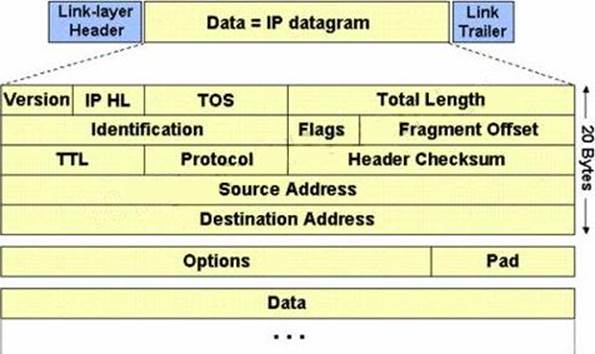- All Exams Instant Download
The IP protocol was designed for use on a wide variety of transmission links. Although the maximum length of an IP datagram is 64K, most transmission links enforce a smaller maximum packet length limit, called a MTU.
The IP protocol was designed for use on a wide variety of transmission links. Although the maximum length of an IP datagram is 64K, most transmission links enforce a smaller maximum packet length limit, called a MTU.
The value of the MTU depends on the type of the transmission link. The design of IP accommodates MTU differences by allowing routers to fragment IP datagrams as necessary. The receiving station is responsible for reassembling the fragments back into the original full size IP datagram.
IP fragmentation involves breaking a datagram into a number of pieces that can be reassembled later. The IP source, destination, identification, total length, and fragment offset fields in the IP header, are used for IP fragmentation and reassembly.

The fragment offset is 13 bits and indicates where a fragment belongs in the original IP datagram.
This value is a:
A . Multiple of four bytes
B . Multiple of two bytes
C . Multiple of eight bytes
D . Multiple of six bytes
Answer: C
Latest 412-79V10 Dumps Valid Version with 201 Q&As
Latest And Valid Q&A | Instant Download | Once Fail, Full Refund
Subscribe
Login
0 Comments
Inline Feedbacks
View all comments

